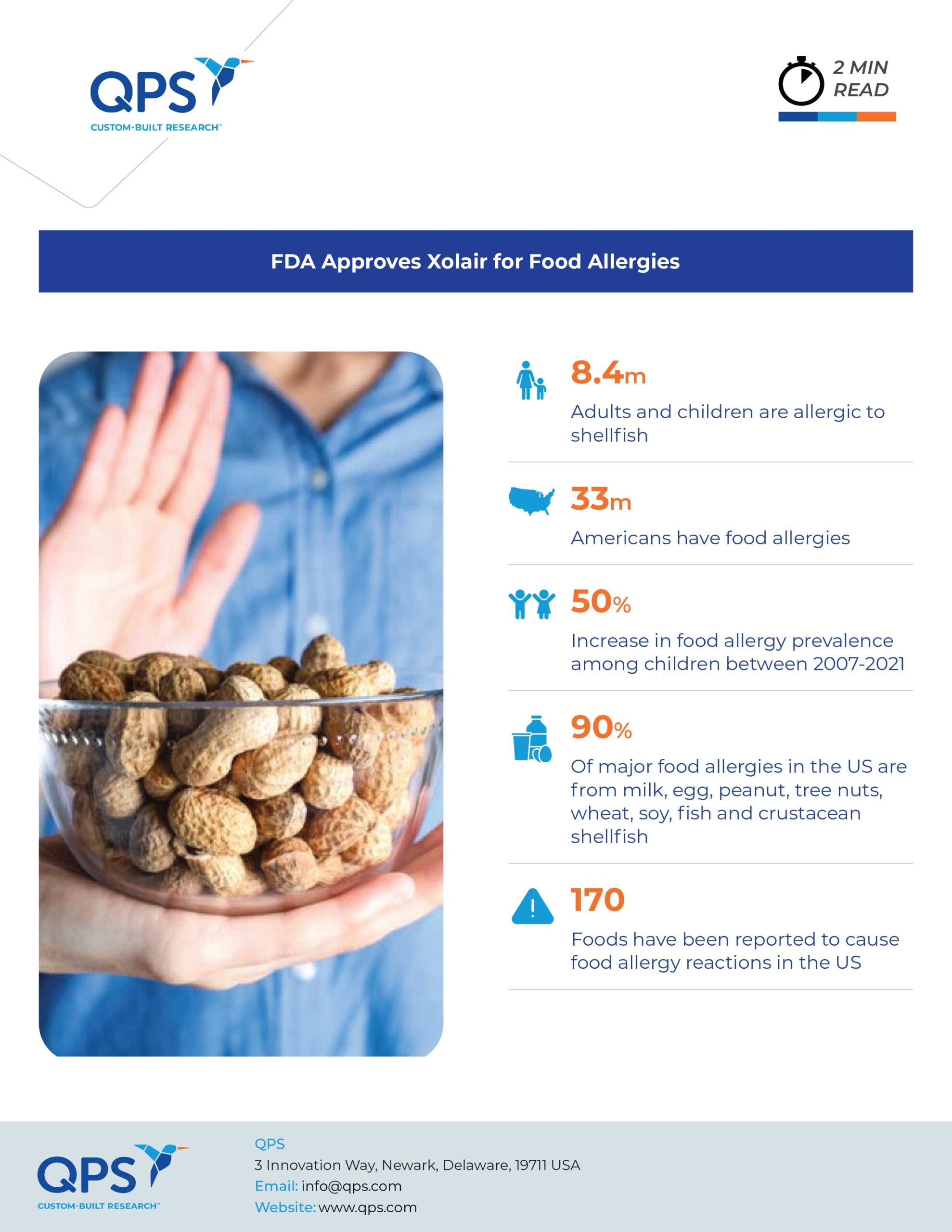For individuals with life-threatening food allergies, everyday activities like dining out and traveling can be tremendously stressful, as even the smallest traces of the allergen can create severe reactions. These reactions, called anaphylaxis, can impede breathing and, in some cases, lead to death. But now, thanks to a multi-stage clinical trial, accidental allergen exposure could become less severe for allergy sufferers. The New England Journal of Medicine reports that the drug omalizumab can lessen the allergic reaction during accidental allergen exposure — for example, if someone is briefly exposed to a peanut product outside of the home. Read on to find out more about food allergies.
Understanding Food Allergies
As explained in TIME, omalizumab was approved more than two decades ago — but it was approved as a treatment for allergic asthma, not for overall allergic reaction management. Now, the U.S. Food and Drug Administration has expanded the approval to include the treatment of food allergies in anyone one year or older. That makes omalizumab the first drug approved to treat allergies to multiple foods. The drug takes a unique approach, essentially “mopping up” antibodies called immunoglobulin E (IgE) cells. These antibodies activate the immune cells responsible for inflammation and allergic reactions, causing symptoms in the lungs, nose, or skin. By “mopping up” these antibodies, omalizumab essentially takes them out of circulation within the immune system. This dramatically reduces harmful allergic reactions in individuals with severe allergies.
Multi-Stage Clinical Trial Crucial to Success
After omalizumab was approved for use in allergic asthma, a multi-stage clinical trial tested its efficacy for food allergies. The trial began five years ago, enrolling 177 children and adolescents and three adults. All trial participants were allergic to peanuts; they also had allergies to at least two other foods, such as milk, eggs, or wheat. The participants were randomly assigned to receive injections of omalizumab or an inactive placebo. They received the injections every two to four weeks for a total of 16 to 20 weeks, depending on the participant. At the end of the injection protocol, the participants were tested to see how they tolerated allergens.
The scientists found that about 67 percent of patients who received omalizumab could eat at least a single 600-milligram dose of peanut protein without a moderate or severe allergic reaction after receiving the course of therapy. (Conversely, only about seven percent of placebo recipients could consume that same amount.) Shockingly, 44 percent of omalizumab recipients could eat over 5,000 milligrams of peanut protein, which is close to 25 peanuts. That’s a much higher concentration of nut protein than most would receive accidentally in public. Based on these results, omalizumab received FDA approval as a means to reduce food allergy reactions during accidental exposure.
_____
As mentioned above, omalizumab isn’t an allergy treatment. The medication was approved specifically to reduce allergic reactions after accidental exposure, meaning that people who take omalizumab must continue to avoid allergens in their daily lives. However, experts are looking toward future studies, which will assess omalizumab as a tool for long-term reaction maintenance alongside other methods, including immunotherapy.
Did you enjoy this blog post? Check out our other blog posts as well as related topics on our Webinar page.
QPS is a GLP- and GCP-compliant contract research organization (CRO) delivering the highest grade of discovery, preclinical and clinical drug research development services. Since 1995, it has grown from a tiny bioanalysis shop to a full-service CRO with 1,100+ employees in the U.S., Europe and Asia. Today, QPS offers expanded pharmaceutical contract R&D services with special expertise in pharmacology, DMPK, toxicology, bioanalysis, translational medicine and clinical development. An award-winning leader focused on bioanalytics and clinical trials, QPS is known for proven quality standards, technical expertise, a flexible approach to research, client satisfaction and turnkey laboratories and facilities. Through continual enhancements in capacities and resources, QPS stands tall in its commitment to delivering superior quality, skilled performance and trusted service to its valued customers. For more information, visit www.qps.com or email info@qps.com.








